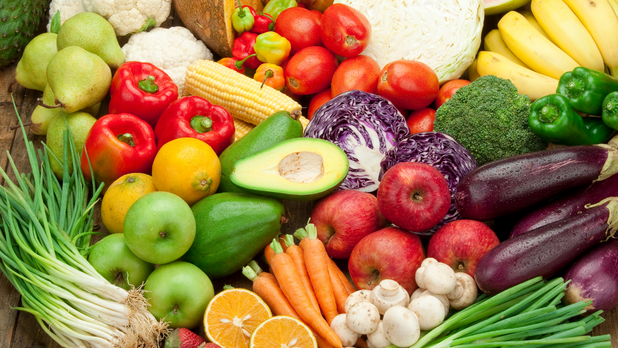There’s a lot of confusing, conflicting information out there about how best to care for our bodies, as our Jewish values entreat us to do. Here are some of the most common questions we get.
Do vegans get enough protein?
Yes! Most plant foods contain protein, especially beans, legumes, and nuts (though you may be surprised to learn that vegetables have protein too!). In fact, it is often more of a problem in the U.S. and other Western societies that people are getting too much protein. This can cause significant health problems such as osteoporosis, cancer, and kidney and heart disease. If you’re eating a well balanced plant-based diet, you will not be deficient in protein.
What about iron / B12 / calcium / other nutrients?
Many people forget that iron is found in high quantities in many plant-based foods, such as dried beans and legumes, dark green leafy vegetables, dried fruit, nuts and seeds, and other whole grain foods. However, all people (not just vegans!) should regularly have a blood test to make sure they are getting all the nutrients they need.
This is especially true of Vitamin B12: Many people have a B12 deficiency these days because of declining soil quality from overfarming and because heavily washing fruits and vegetables (since most of us don’t want to eat soil) is removing this important vitamin from our food. As above, regular blood tests are an important source of information and supplements may be needed for both vegans and omnivores (and everyone in between).
Calcium, on the other hand, can be found in many sources other than cows’ milk (which is typically fortified with calcium, just like plant milks are). Dark leafy greens and legumes, for instance, provide significant amounts of calcium. Much research has shown that large percentages of the population (including up to 80% of Ashkenazi Jews) are lactose intolerant and that by drinking cows’ milk, they are experiencing bloating, cramping, diarrhea, and high levels of mucus. These issues frequently go away when people ditch dairy. Additionally, many dairy products are high in saturated fats, which increases the risk factor for heart disease.
I have food allergies or other health concerns. How can I go veg?
The magical thing about a plant-based lifestyle is that it opens the door to so many more foods. Most people who follow a standard American or Western diet end up eating many of the same foods each day: generally breads, meat, dairy, and only a few fruits and vegetables. When you go veg, you can learn about so many more produce items than you ever encountered before and will realize there are many more types of grains to serve with your meals. There are hundreds of vegan recipe websites (including ours!) and videos to guide you in learning how to use new foods (and how to prepare foods you used to enjoy in new ways). Be sure to work closely with a medical professional as you make changes to your intake, but know that there is a plethora of new foods to encounter.
Don’t kids need milk?
Think about it: Do any other animals regularly drink the breast milk of other species? Cows’ milk is made to support the growth of a specific animal: cows. That’s why it’s full of saturated fat and cholesterol—great for calves, but not so much for kids.
Much research has shown that children can flourish on a plant-based lifestyle with no dairy. As was mentioned above, calcium for strong bones can be found in many different plant-based sources, and much of the plant-based milk in the market these days has been fortified with calcium (with no saturated fat or cholesterol to worry about). Many children raised on a vegan lifestyle are healthy and flourishing.
Aren’t we supposed to eat meat on Shabbat?
Eating meat on Shabbat is a minhag (tradition) and not a requirement. We are told to enjoy the Sabbath because it is a special day that was given to us. Many people believe that eating meat (and drinking wine) are a delight and make something more special, but if you aren’t someone who delights in eating meat, you are encouraged to find delight in eating the foods you do enjoy.
